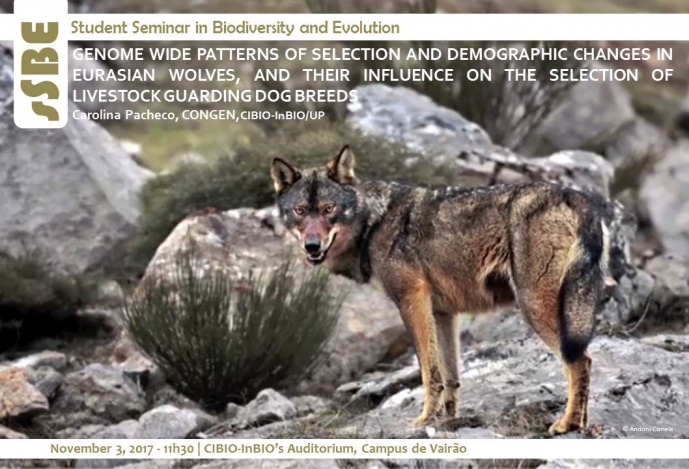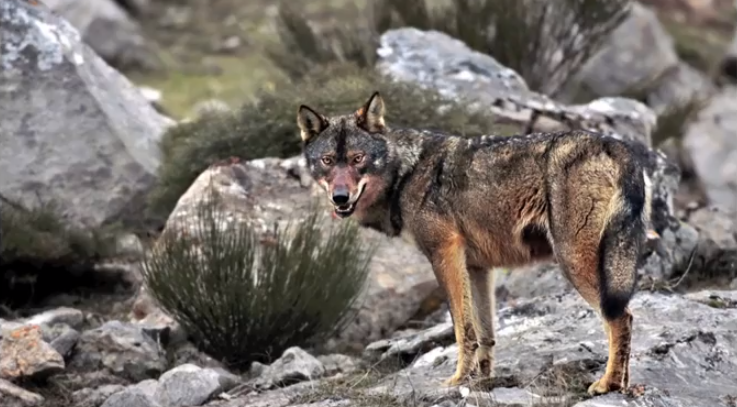GENOME WIDE PATTERNS OF SELECTION AND DEMOGRAPHIC CHANGES IN EURASIAN WOLVES, AND THEIR INFLUENCE ON THE SELECTION OF LIVESTOCK GUARDING DOG BREEDS

STUDENT SEMINAR IN BIODIVERSITY AND EVOLUTION

Recent population genetic studies on European wolves revealed an impressive structural scenario, at different hierarchical levels, with a fine scale substructure occurring within core population units. In this presentation I will talk about my PhD project where we propose to address three main questions related to previously identified population genetic structure exhibited by Eurasian wolves using a dataset of 170k SNPs. First, we will investigate whether ecological and/or environmental heterogeneity are responsible for local adaptations producing the fine population differentiation exhibited by Iberian wolves. Second, we propose to study the demographic history of wolf clusters in Eurasia and, particularly, to clarify the event marking the cross of Eurasian wolves to America. Third, we will investigate how local wolf populations across Eurasia may have contributed to selection in livestock guarding dog breeds (LGDs), which were developed to minimize livestock depredation by wolves and are an essential a non-lethal tool in wolf management.
Carolina Pacheco is graduated in Biology and holds a MSc in Biodiversity, Genetics and Evolution from the Faculty of Sciences of the University of Porto. Currently, Carolina is enrolled in the 1st year of the BIODIV PhD program under the supervision of Dra. Raquel Godinho (CIBIO-InBIO) and Dra. Astrid V. Stronen (Aalborg University, Denmark), and is part of the CONGEN group at CIBIO-InBIO.
[Host: Raquel Godinho, Conservation Genetics and Wildlife Management]
Image credits: Andoni Canela